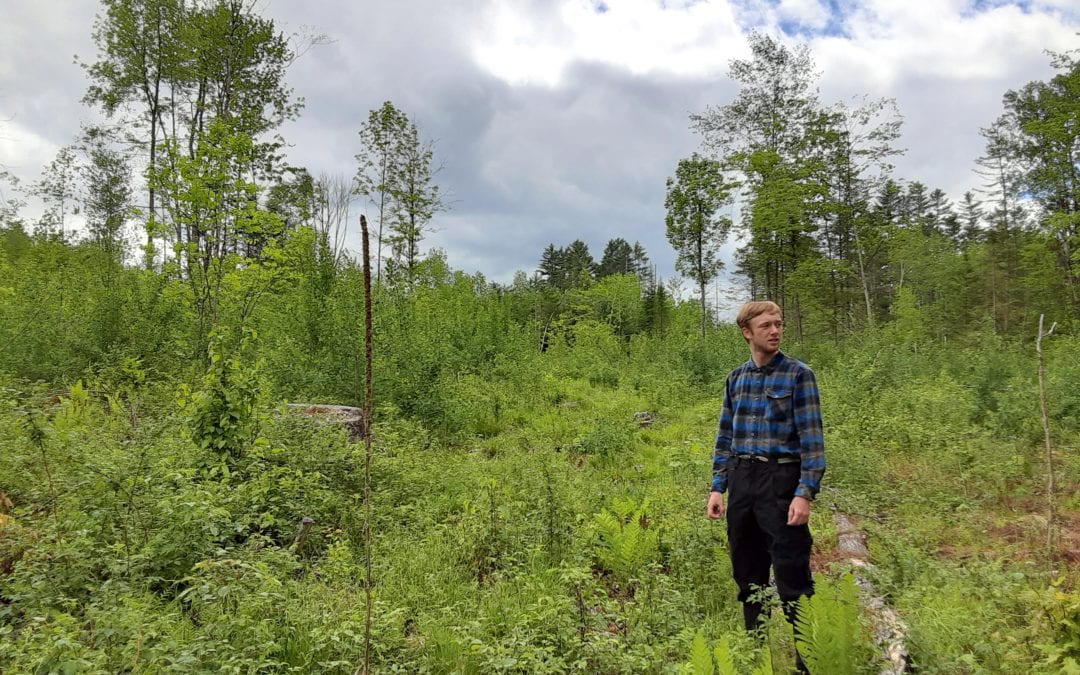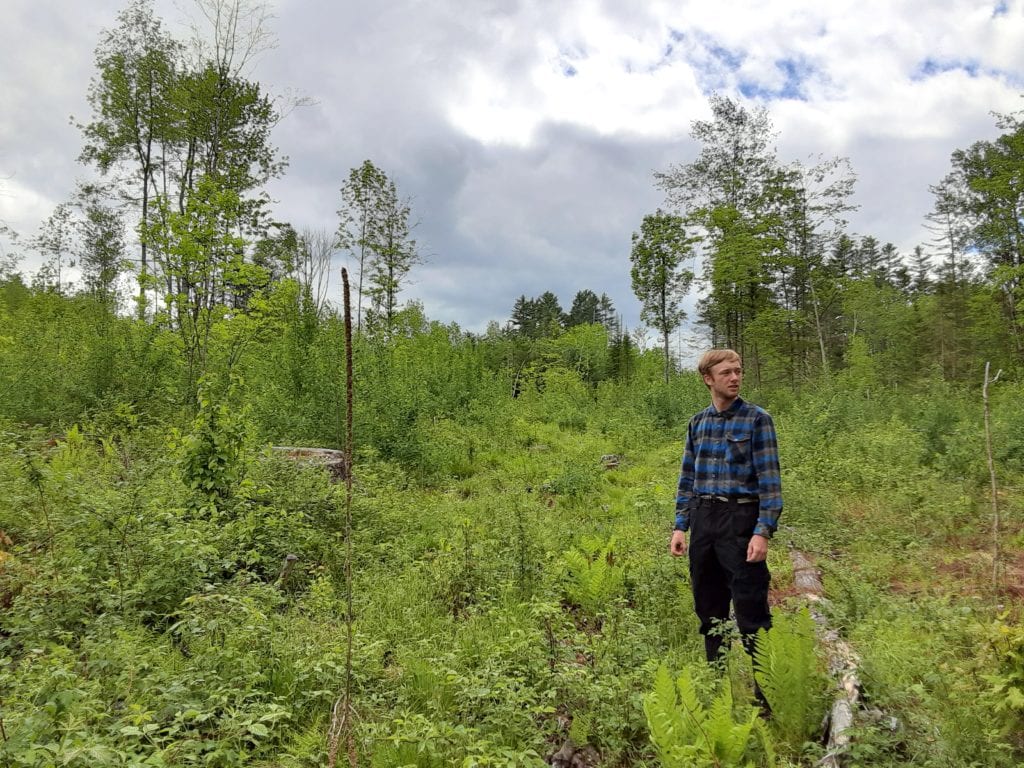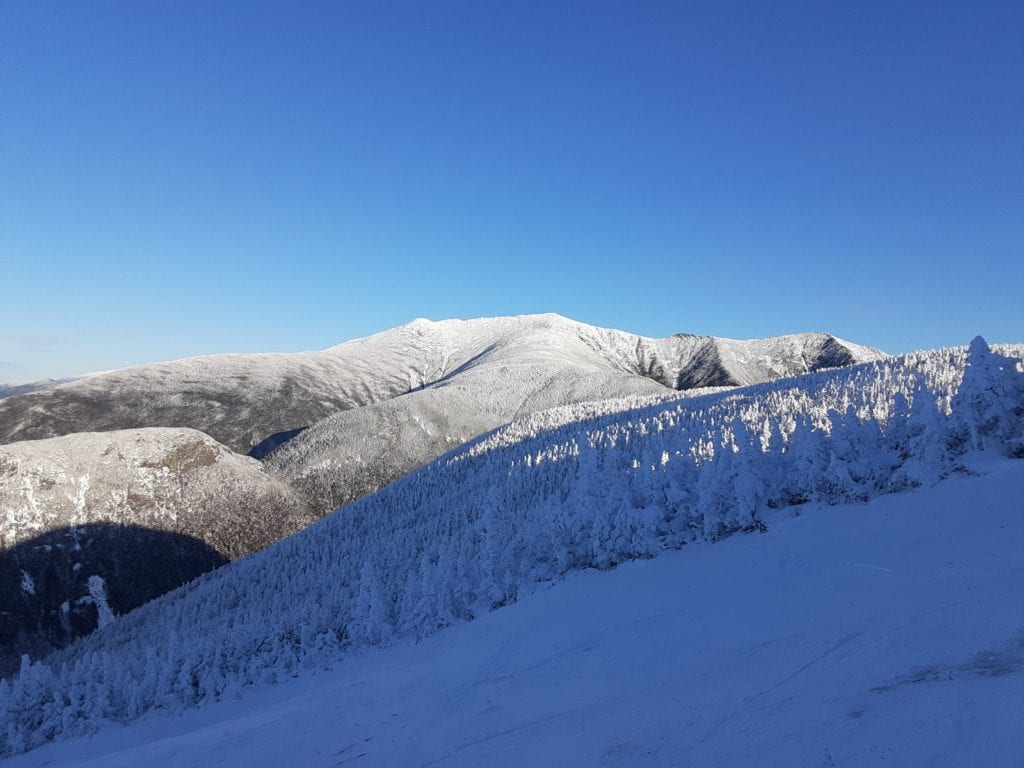Leaving Florida
I moved to New Hampshire in 2012, as a 12-year-old, along with my parents and sister. We were not yet participants of the Free State Project, but we were ready to move away from Florida. When my parents were growing up, our area (about 30 miles north of Orlando) was largely orange groves and cattle ranches, but by 2012, it was becoming clear that the city was encroaching on our home.
Our neighbor’s house was robbed twice, our two-lane county road was beginning to have as many cars per day as some rural interstates, and to top it off, my dad began noticing strange depressions in our yard. In Florida, the limestone ground is supported by water–water which has increasingly been pumped out of the ground onto people’s lawns for the past several decades–which means that we were beginning to be at risk for having our house swallowed up by a sinkhole.
Searching For Our New Home
At first, we planned to move to western North Carolina or eastern Tennessee. My mother has family in that area, and we were already familiar with it from annual vacations. However, there were very good reasons not to do this. Firstly, North Carolina has a ridiculously high income tax. I am sure that anybody reading this article will likely agree, taxation of any kind is akin to theft, but income tax is akin to slavery, which is even worse.
Also, since my sister and I were homeschooled, having that as an easy option is very important to me and my family. Currently, Florida has reasonably decent homeschool laws–all you need to do is maintain records of your curriculum and prove that you schooled at least 180 days a year. But many states, including North Carolina, are much more draconian.
Tennessee solved both these problems, since there is no state income tax and homeschooling is relatively easy. On the downside, anybody who has spent time in Tennessee in the summer knows that the heat of Central Florida is pleasant by comparison.
Why New Hampshire?
Considering our two main requirements (no income tax, and decent homeschool laws) and a preference for a cool climate, we only had a few states to choose from. Alaska, Tennessee, South Dakota, Texas, and Wyoming would have fit our main requirements, but New Hampshire always kept coming to the top. There were a number of reasons for this.
First, New Hampshire is the only state in the country with no income or sales tax, though it does make up for this fact by having some of the highest property taxes in the nation.
Second, its homeschool laws are even better than Florida. All a family has to do in order to be legal is to send a letter of intent to a charter school, or one’s local school district, and score higher than the 40th percentile on a common standardized test. The test results are not even required to be sent to the state annually, but you are required to keep them in your records in case there is ever a question about the quality of your education.
Finally, the climate and topography of New Hampshire fits our preferences. There is something about four distinct seasons, cool summers, and having mountains, lakes, and beaches all within a couple hours that is incredibly appealing.
Since my parents both worked from home, they were able to keep their Florida jobs, and we decided to move to the White Mountains region, first Bartlett, and now Franconia. For us, this has been an excellent fit. We have patterned our lives in such a way as to not need a car. About once a month, we will rent one for the weekend to get groceries. We live close enough to walk to the ski slope for winter recreation (and my job), even if that walk is about five miles on the main road. This in itself is one of the advantages of New Hampshire.
It is perfectly safe to walk or bike just about anywhere. In fact, on a few rare occasions when I am late for work, I have actually stuck my thumb out and gotten a ride. I typically know the person picking me up, but even if I don’t, there is definitely a “pay it forward” culture among a lot of the locals, who are more than willing to help a kid that is just starting out, and not terrified that he might be a criminal. Often, you don’t even have to ask. People will stop and offer.
What I Love About New Hampshire
As a kid, I mostly just appreciated New Hampshire for its scenery, and my ability to map out hundred-mile bike rides, or spend the day at the ski slope–both of which are hard to do in Florida. However, as I begin to start my adult life, I appreciate many more aspects of this state. First, there is a definite libertarian philosophy among the residents. This doesn’t always transfer down to Concord (I am writing this during the Coronavirus lockdowns, which have been going on for nearly three months), but it does mean that your neighbors are unlikely to call the cops on you for something that isn’t hurting anybody. Some towns do not have any zoning, which means that you are free to build your business wherever you see fit.
Finally, I appreciate New Hampshire’s commitment to the land. Often, when people say this, they are talking about the government buying up land for state parks or imposing environmental regulations on its citizens. However, New Hampshire takes a somewhat different approach. We do have a good amount of public land. The White Mountain National Forest is nearly a million acres, and state parks like Franconia Notch, Forest Lake, or Crawford Notch are popular tourist destinations, but the vast majority of land is held by private individuals.
In order to encourage these individuals to keep land as forest or farm, instead of housing development, the state has enacted what we call “Current Use” taxation. This basically means that forested land is taxed at a tiny fraction (sometimes less than 10%) of its fair market value, which means that landowners can afford to keep it, even if their farm or timber does not produce much (if any) income. In order to make sure the land is maintained sustainably and is a benefit to society, there are additional tax incentives to write up a sustainable forestry management plan, and for keeping your land open to the public for recreation.
Imagine this: Because of this tax structure, I, as a 19-year-old college student, was able to purchase 200 acres of land, which I plan to turn into a fruit and timber farm, and it only costs me $150 per year in taxes.
The North Country: What To Expect
There are a few downsides to living in the northern half of New Hampshire. First, is the weather. I, personally, love the variety you get, and there is nothing I like more than stepping outside on a sunny, -30 degree winter day, unless it is skiing in a fresh 18 inches of snow. However, many people might find six (or more) months of possible freezing temperatures and four months of heavy snowfall oppressive. Next, despite all its advantages, the North Country is an economically depressed region. The cost of living is reasonably cheap, especially compared with the rest of New England, but don’t come here if you don’t think you can live comfortably on a $30,000/year salary, or less. The southern half of the state doesn’t have this problem, but as you move towards the Massachusetts border you tend to find yourself back in suburbia, with all the political and social aspects thereof.
College, if you are of that age or have kids of that age, is quite expensive. This is because the state does not funnel your tax dollars into a service that only a small portion of the population will use, but it does mean that community college can cost nearly as much as a four-year public school in Florida. That being said, the quality of the schools is top-notch, so if you are willing to pay, this might be an advantage.
If you like the excitement of an urban area, this is also not the place for you. We are only 140 miles from Boston, but the biggest cultural resources in my town are the local convenience store, where the old-timers hang out, and one small dive bar. Again, some people, myself included, consider this an advantage.
Finally, if you come from somewhere like the rural South, you might find the people a bit cold. This is not to say bad–I have met what I believe to be some of the most quality people in the world in the North Country–but there is a definite sense of suspicion regarding outsiders. Once you have lived in the area a few years, especially if you respect the local culture of doing strange and unusual things (like walking up roads, or building farmsteads) you won’t even notice it anymore. In fact, I have learned to appreciate the directness that most New Englanders are known for. Also, there is a pretty decent level of intellectual tolerance up here, something you don’t see very much, these days.
I like being able to hang out with college-educated transplants, Trump supporters, farmers, rednecks, and hippies all in the same room, and play a friendly game of ring-toss.
In Conclusion
I would say that it is hard to beat New Hampshire for scenery, people, or alternative lifestyle opportunities. If you don’t mind the cold, or a slower pace of life, then the North Country region of the state might be perfect for you, especially if you like outdoor recreation like skiing, hiking, “snowmachinin’, ” or hunting. If you think that the government is generally too big, and want to live in a rural area with people as unusual as you are, then come on up for a visit.
By: Ely McLaughlin




Well Said Ely. thanks for sharing.. We love visiting NH and SOMEDAY, i’d love to be living there full time…
I rather move to New Hampshire because I rather take a snow storm over a hurricane any day , don’t get me wrong Florida is nice state for Warm weather etc, it’s a great state for vacation but to live in no thank you …. New Hampshire is just Beautiful, peaceful , and I love the woods and mountains..